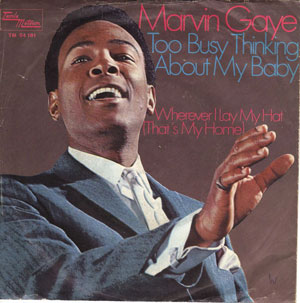
"Too Busy Thinking About My Baby" is a Motown song written by Norman Whitfield, Barrett Strong, and Janie Bradford. The song was first recorded by The Temptations as a track on their 1966 album Gettin' Ready. Eddie Kendricks sings lead on the recording, which was produced by Whitfield. Jimmy Ruffin also recorded a version with The Temptations providing background vocals in 1966. It remained unreleased until 1997.
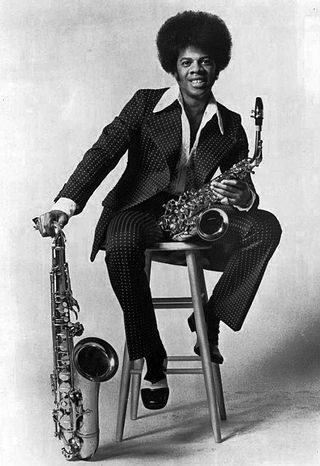
James Walter Castor was an American funk, R&B, and soul musician. He is credited with vocals, saxophone and composition. He is best known for songs such as "It's Just Begun", "The Bertha Butt Boogie", and his biggest hit single, the million-seller "Troglodyte ." Castor has been described as "one of the most sampled artists in music history" by the BBC.

"Breaking Up Is Hard to Do" is a song recorded by Neil Sedaka, co-written by Sedaka and Howard Greenfield. Sedaka recorded this song twice, in 1962 and 1975, in two significantly different arrangements, and it is considered to be his signature song. Between 1970 and 1975, it was a top-40 hit three separate times for three separate artists: Lenny Welch, The Partridge Family and Sedaka's second version.

"Another Saturday Night" is a 1963 hit single by Sam Cooke from the album Ain't That Good News. The song was written by Cooke while touring in England when staying in a hotel where no female guests were allowed. It reached No. 10 on the Billboard Hot 100 and was No. 1 on the R&B chart for a single week. In the UK, the song peaked at No. 23 on the UK Singles Chart.

"C'mon Marianne" is a song composed by L. Russell Brown and Raymond Bloodworth and popularized by The Four Seasons in 1967. Produced by Bob Crewe, the single was the last Four Seasons single to reach the Top Ten of the Billboard Hot 100 chart in the 1960s, and their last Top Ten hit until "Who Loves You" in 1975.
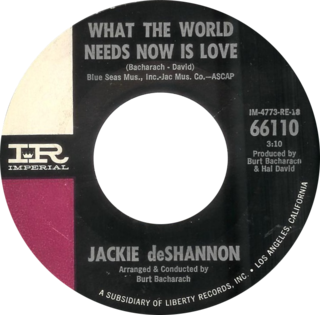
"What the World Needs Now Is Love" is a 1965 popular song with lyrics by Hal David and music composed by Burt Bacharach. First recorded and made popular by Jackie DeShannon, it was released on April 15, 1965, on the Imperial label after a release on sister label Liberty records the previous month was canceled. It peaked at number seven on the US Hot 100 in July of that year. In Canada, the song reached number one.

"Tin Man" is a 1974 song by the pop rock band America. It was written by band member Dewey Bunnell and produced by George Martin, who also plays the piano part on the recorded version. The song was included on the band's album Holiday, also from 1974.
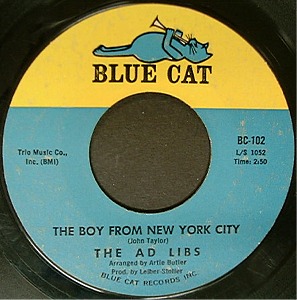
"The Boy from New York City" is a song originally recorded by the American soul group The Ad Libs, released in 1964 as their first single. Produced by Jerry Leiber and Mike Stoller, the song peaked at No. 8 on the US Billboard Hot 100 on the chart week of February 27, 1965. Though the group continued to record other singles, they never repeated the chart success of "The Boy from New York City". According to Artie Butler, the track was recorded at A&R Studios in New York, in three separate sessions. The first session was to lay down the rhythm section, then the next session was for the lead and backup vocals, with the last session was just for the horns.
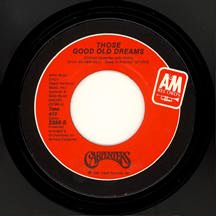
"Those Good Old Dreams" is a song by The Carpenters. Its B-side is "When It's Gone ", a song released on the Made in America album in 1981.

"I've Got the Music in Me" is a pop song by The Kiki Dee Band, released in 1974. It was written in 1973 by Bias Boshell, Kiki Dee Band's keyboardist. It is also the title of a Kiki Dee Band album released in 1974 and re-mastered and re-issued with bonus tracks in 2008.

"Love or Let Me Be Lonely" is a pop song recorded by the soul group The Friends of Distinction and released as a single in early 1970. The song was a multi-format success, peaking in the top 10 of the Billboard Hot 100 at #6 on May 1, 1970 and at #13 on the R&B chart. On the Adult Contemporary singles charts, "Love or Let Me Be Lonely" went to #9. The song is ranked as the 63rd biggest hit of 1970.
"Flamingo" (1940) is a popular song and jazz standard written by Ted Grouya with lyrics by Edmund Anderson and first recorded by singer Herb Jeffries and the Duke Ellington Orchestra on December 28, 1940, for Victor Records. This briefly reached the Billboard charts in 1941.

"Do It Baby" is a 1974 single recorded and released by the Motown R&B group The Miracles. The song was taken from the album of the same name, and written by Motown staff songwriters Freddie Perren and Christine Yarian and produced by Perren.
"A Lover's Question" is a 1958 Pop, R&B hit for Clyde McPhatter. The single was written by Brook Benton and Jimmy T. Williams and was Clyde McPhatter's most successful Pop and R&B release. The bass singer is Noah Hopkins. "A Lover's Question" made it to #6 on the Billboard Hot 100 and was #1 for one week on the R&B chart.
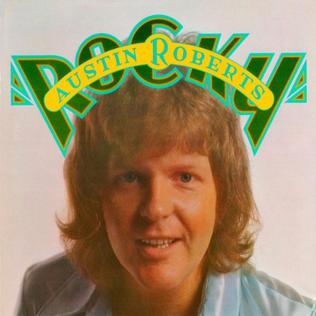
"Rocky" is a song written by Ronald Johnson and performed by American country music artist Dickey Lee. It was released in July 1975 as the fifth single and title track from the album Rocky. On the country chart, "Rocky" was Lee's most successful single, and his only number one. It spent fourteen weeks on the chart, including one week at number one.
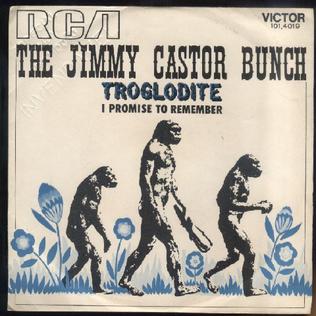
"Troglodyte ", originally released as "Troglodite", is a 1972 novelty funk song by The Jimmy Castor Bunch. In the USA, it peaked at No. 4 on the R&B chart and No. 6 on the Billboard Hot 100. Billboard ranked it as the No. 80 song for 1972. The song has been sampled in hip-hop and dance music. In Canada, the song reached No. 1 for two weeks in July 1972, and was No. 29 on the RPM/Kowal year-end chart.

"Stormy" is a hit song by the Classics IV released on their LP Mamas and Papas/Soul Train in 1968. It entered Billboard Magazine October 26, 1968, peaking at #5 on the U.S. Billboard Hot 100 chart and #26 Easy Listening. The final line of the chorus has the singer pleading to the girl: "Bring back that sunny day". The single, along with the prior release of "Spooky" and, soon after, the release of "Traces", formed a trio of solid hits for the band.

"Get Up and Boogie" is a song by German disco act Silver Convention from their 1976 second album of the same name. The song was written and composed by Sylvester Levay and Stephan Prager, and produced by Prager. The song was released as the lead single from the album Get Up and Boogie in 1976.
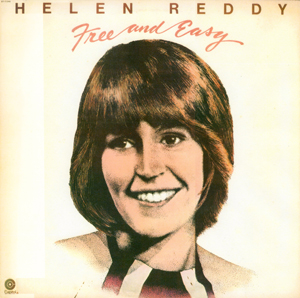
Free and Easy is the sixth studio album by Australian-American pop singer Helen Reddy that was released in the fall of 1974 by Capitol Records. The album included rare forays into rock and vaudeville ("Showbiz"). The album debuted on Billboard's Top LP's & Tapes chart in the issue dated November 2, 1974, and reached number eight during its 28 weeks there. The following month, on December 18, the Recording Industry Association of America awarded the album with Gold certification for sales of 500,000 copies in the United States. In the UK it peaked at number 17, and in Canada's RPM magazine it got as high as number nine on its list of the top LPs in the issue dated January 11, 1975. On January 27, 2004, it was released for the first time on compact disc as one of two albums on one CD, the other album being her other 1974 release, Love Song for Jeffrey.
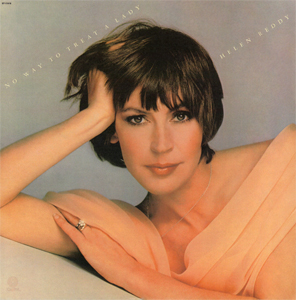
No Way to Treat a Lady is the seventh studio album by Australian-American pop singer Helen Reddy that was released in the summer of 1975 by Capitol Records and found Reddy tackling country pop, bossa nova and blues. The album debuted on Billboard's Top LP's & Tapes chart in the issue dated July 12, 1975, and peaked at number 11 over the course of 34 weeks, and on the album chart in Canada's RPM magazine it got as high as number 13. On January 19, 1976, the Recording Industry Association of America awarded the album with Gold certification for sales of 500,000 copies in the United States, and on August 23, 2005, it was released for the first time on compact disc as one of two albums on one CD, the other album being her 1976 release, Music, Music.


















